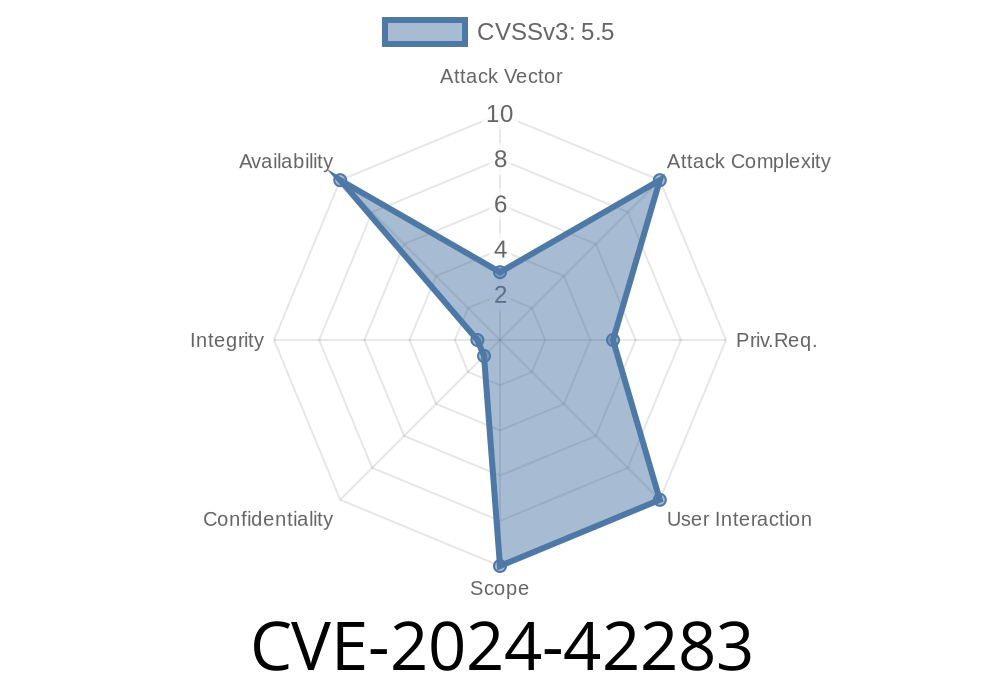Date Published: 2024-06-10
Severity: Low (Memory Disclosure, Potential Information Leak)
Affected Component: Linux Kernel Networking (Nexthop Subsystem)
Patched in: Linux kernel mainline
TL;DR
A recently fixed bug in the Linux kernel’s networking code led to the leakage of small, uninitialized memory slices when dumping nexthop (routing) group information. While not directly exploitable in its current state, this kind of information leak can complicate future development and, in some cases, inadvertently expose kernel stack or heap data to userspace.
Background: What’s Happening?
“Nexthop” is a fundamental part of Linux’s networking stack. It specifies where packets should be forwarded next. When dealing with advanced routing, you can group “nexthops” for features such as multipath routing.
Linux exposes operations to add, edit, and query these nexthop definitions.
Where’s the Problem?
Each nexthop group entry is described by a struct (struct nexthop_grp). This structure contains several fields, among them two reserved slots: resvd1 and resvd2.
The function responsible for creating userspace messages about nexthop groups, nla_put_nh_group(), failed to zero these reserved fields before copying data into userspace. That means whatever random data was in memory at that location gets included in the message to the user.
Here’s a *simple* demonstration using standard Linux commands and strace
# Add a simple nexthop
ip nexthop add id 1 dev lo
# Add a group nexthop that includes the above
ip nexthop add id 101 group 1
# Use strace to peek at what kernel sends to userspace
strace -e recvmsg ip nexthop get id 101
# Output edited for clarity:
# recvmsg(... [{nla_len=12, nla_type=NHA_GROUP},
# [{id=1, weight=, resvd1=x69, resvd2=x67}]] ...) = 52
Notice above how resvd1 and resvd2 are set to random hex values (x69, x67). These are *uninitialized* bytes, leaking whatever just happened to be in kernel memory at the time.
Why Is This a Problem?
- Information Leakage: Even though the leaking fields are marked reserved and currently unused, they still leak kernel memory, which could contain pointers or previous data from within the kernel.
- Future Trouble: If kernel developers or security folks later decide to reuse these fields, this unpredictable data complicates migration, parsing, and reliability.
- General Good Practice: All data exposed from the kernel to userland should be fully initialized to avoid unintended side effects or information disclosure.
Exploit Details
This bug is not directly exploitable in terms of privilege escalation or code execution. The exploit scenario is limited to leaking a few low-value bytes per nexthop group dump. Still, a malicious user could:
Here’s a minimalist Python script to extract and display the uninitialized values
import subprocess
import re
def get_nexthop_reserved_fields(nh_id):
# Use 'ip' command to get nexthop info via strace
result = subprocess.run(
["strace", "-e", "recvmsg", "ip", "nexthop", "get", "id", str(nh_id)],
stderr=subprocess.PIPE, stdout=subprocess.PIPE, universal_newlines=True
)
# Parse for reserved fields (very rough, for demonstration)
match = re.search(r'resvd1=x([-9a-f]+), resvd2=x([-9a-f]+)', result.stderr)
if match:
print(f"Nexthop Group {nh_id} - resvd1: {match.group(1)}, resvd2: {match.group(2)}")
else:
print("No reserved fields found")
get_nexthop_reserved_fields(101)
Note: This only works if running on a Linux with the vulnerable version (before the patch).
The Fix
The kernel fix is simple and elegant: initialize the entire struct to zero before use.
Relevant Patch:
Link to commit: bd27022d580cf7c04b99249b7021ac3e9a1e7a6a
Key Code Snippet (from the patch)
struct nexthop_grp nhg = { }; // <-- Zero initializes all fields
// ... populate fields as appropriate ...
nhg.id = id;
nhg.weight = weight;
nla_put(msg, NHA_GROUP, sizeof(nhg), &nhg);
Recommendations
- Upgrade Your Kernel: Always apply kernel security updates promptly, even for “low severity” bugs like this—these build up to larger threats over time.
- Audit Reserved Fields: If you're a kernel developer, make sure *all* data sent to userland is fully initialized.
- Monitor for Patterns: If you're managing high-security Linux systems, look for repeated nexthop queries—persistent attempts could suggest probing for kernel memory.
References
- CVE-2024-42283 at NVD (National Vulnerability Database)
- Original kernel mailing list patch
- Patch commit at kernel.org
- iproute2 nexthop documentation
Conclusion
CVE-2024-42283 serves as a reminder that even small, seemingly harmless information leaks can have consequences down the line. While this particular case doesn’t threaten system stability or grant attackers elevated rights, careful initialization and code hygiene are an important part of kernel security and stability for everyone.
Timeline
Published on: 08/17/2024 09:15:09 UTC
Last modified on: 08/19/2024 19:54:33 UTC
